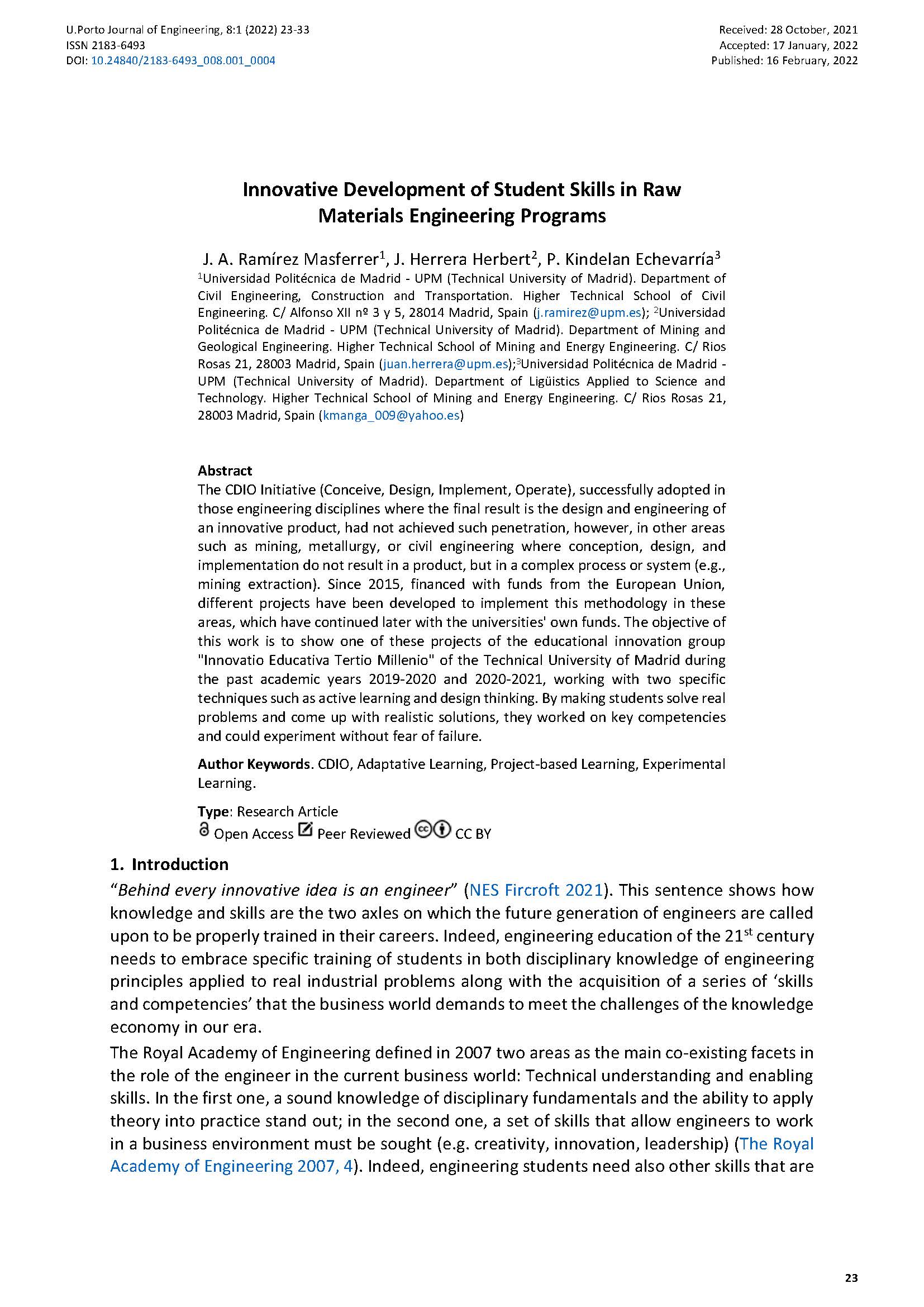Innovative Development of Student Skills in Raw Materials Engineering Programs
Main Article Content
Abstract
The CDIO Initiative (Conceive, Design, Implement, Operate), successfully adopted in those engineering disciplines where the final result is the design and engineering of an innovative product, had not achieved such penetration, however, in other areas such as mining, metallurgy, or civil engineering where conception, design, and implementation do not result in a product, but in a complex process or system (e.g., mining extraction). Since 2015, financed with funds from the European Union, different projects have been developed to implement this methodology in these areas, which have continued later with the universities' own funds. The objective of this work is to show one of these projects of the educational innovation group "Innovatio Educativa Tertio Millenio" of the Technical University of Madrid during the past academic years 2019-2020 and 2020-2021, working with two specific techniques such as active learning and design thinking. By making students solve real problems and come up with realistic solutions, they worked on key competencies and could experiment without fear of failure.
Downloads
Article Details

This work is licensed under a Creative Commons Attribution 4.0 International License.
Authors who publish with this journal agree to the following terms:
- Authors retain copyright and grant the journal right of first publication with the work simultaneously licensed under a Creative Commons Attribution License that allows others to share the work with an acknowledgement of the work's authorship and initial publication in this journal.
- Authors grant the journal the rights to provide the article in all forms and media so the article can be used on the latest technology even after publication and ensure its long-term preservation.
- Authors are able to enter into separate, additional contractual arrangements for the non-exclusive distribution of the journal's published version of the work (e.g., post it to an institutional repository or publish it in a book), with an acknowledgement of its initial publication in this journal.
- Authors are permitted and encouraged to post their work online (e.g., in institutional repositories or on their website) prior to and during the submission process, as it can lead to productive exchanges, as well as earlier and greater citation of published work (See The Effect of Open Access).

